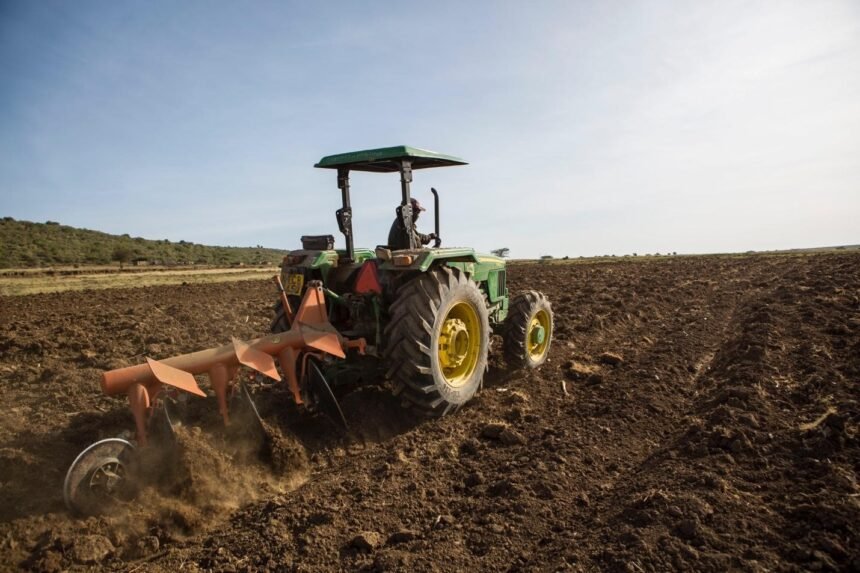World politics is growing more intense as US President Donald Trump pushes his policies and demands recognition from powerful nations, including those in Africa. South Africa now faces the risk of losing US financial aid after allegations surfaced that it is seizing land without compensation and discriminating against certain groups. Land ownership has long been a sensitive issue in the country, with the phrase “land appropriation without compensation” frequently used in national discussions.
Last month, President Cyril Ramaphosa signed a law allowing land seizures without compensation under certain conditions. Land reform has been a divisive issue in South Africa, where white landowners still hold most private farmland, even 30 years after apartheid ended. Many South Africans believe the government must act to correct past injustices caused by racial segregation and land dispossession.
In response to Trump’s accusations, Ramaphosa posted on social media, insisting that South Africa is a constitutional democracy based on the rule of law, justice, and equality. He denied that the government had confiscated any land. He also pointed out that the only funding South Africa receives from the US is through the PEPFAR programme, which funds 17% of the country’s HIV/AIDS initiatives. According to US government data, South Africa received around $440 million (£358 million) in American assistance in 2023.
Billionaire Elon Musk, who was born in South Africa and now advises Trump, also joined the debate. He criticised the law, claiming it discriminates against white citizens. On social media, Musk directly asked Ramaphosa why South Africa had introduced what he called “openly racist ownership laws.”
Trump escalated the matter further, announcing on his social media platform Truth Social that he would cut all future US funding to South Africa until a full investigation was completed. Speaking to journalists, he accused South Africa’s leadership of committing “terrible, horrible” actions. He claimed the government was taking land and possibly engaging in even worse activities. He confirmed that funding would remain suspended until the US had fully reviewed the situation.
The new South African law allows land expropriation without compensation only when it is considered “just and equitable” and in the public interest. This applies to unused land, land with no development plans, or land that poses a risk to public safety.
Land ownership has been a controversial issue in South Africa for over a century. The 1913 Natives Land Act, passed under British colonial rule, restricted property rights for the black majority, ensuring that most land remained in the hands of the white minority. This law set the stage for decades of forced removals, which continued under apartheid. These removals fuelled resistance against white-minority rule, leading to South Africa’s first democratic elections in 1994, when Nelson Mandela became president. Until recently, the government followed a “willing seller, willing buyer” approach to land reform, which many critics believe has slowed progress.
A 2017 government report found that 72% of privately owned farmland in South Africa remained in white hands, even though white citizens made up just 7.3% of the population according to the 2022 census. Some critics worry that South Africa’s land reform efforts could follow the same path as Zimbabwe’s land seizures, which caused economic collapse and drove away foreign investors.
South African Mineral Resources Minister Gwede Mantashe responded to Trump’s comments by suggesting that if the US cuts funding, South Africa should stop exporting key minerals like platinum, iron, and manganese to the US.
AfriForum, a group that represents the white Afrikaner community, has urged the government to revise the law to better protect property rights. However, the group disagreed with Trump’s decision to cut aid, arguing that any punishment should be directed at senior ANC leaders rather than the South African people.
The ANC, led by Ramaphosa, governs South Africa in a coalition with nine smaller parties. This is not the first time Trump has criticised South Africa over land issues. During his first term, he instructed then-Secretary of State Mike Pompeo to investigate “farm seizures, expropriations, and the large-scale killing of farmers.” At the time, South Africa dismissed Trump’s statements, accusing him of spreading misinformation and trying to create division.
As tensions rise over land reform, the dispute between South Africa and the US continues to intensify. The outcome could have major political and economic consequences, affecting both international relations and the future of land ownership in South Africa.










